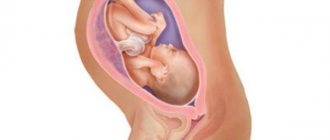Indicators in grams by month
How does such a newborn baby gain weight? From the table below you can understand what the rate of weight gain is by month and how much a baby should weigh up to a year, for example at 4 or 9 months.
| Age, months | Birth weight, grams | |||
| Up to 1000 | from 1001 to 1500 | From 1501 to 2000 | From 2001 to 2500 | |
| Average weight gain, grams | ||||
| 1 | 180 | 190 | 190 | 300 |
| 2 | 400 | 650 | 700-800 | 800 |
| 3 | 600-700 | 600-700 | 700-800 | 700-800 |
| 4 | 600 | 600-700 | 800-900 | 700-800 |
| 5 | 550 | 750 | 800 | 700 |
| 6 | 750 | 800 | 700 | 700 |
| 7 | 500 | 950 | 600 | 700 |
| 8 | 500 | 600 | 700 | 700 |
| 9 | 500 | 550 | 450 | 700 |
| 10 | 450 | 500 | 400 | 400 |
| 11 | 500 | 300 | 500 | 400 |
| 12 | 450 | 350 | 400 | 350 |
Features of feeding a premature baby
Since a premature baby, due to physiological characteristics, cannot take and absorb food on its own in full, there are several ways to feed a prematurely born baby.
View gallery
How to feed a premature baby:
- by administering a glucose solution intravenously;
- introducing mother's milk or formula through a tube, starting with a few drops and gradually increasing the portion;
- from a bottle through a nipple - as a rule, this method is used for babies who have a sucking reflex, but the child is not strong enough to suck milk from the breast;
- breast-feeding.
If the question is how to quickly gain weight for a premature baby, breastfeeding or careful selection of an adapted formula is recommended.
How much should babies gain per day?
It is impossible to say exactly how much weight a baby should gain per day, since all children gain a different number of grams per day . It all depends on the degree of prematurity of the child and on his general condition. On average, this value should be about 50 grams per day. But at the same time, the general condition of the child should be taken into account, as well as the number of feedings, urinations, and so on.
If your child gains a little less, don’t immediately panic. The main thing is that there is no large weight loss.
Causes of premature birth
No pregnant woman thinks that her baby may be born prematurely. But circumstances do not always depend only on the wishes and plans of the expectant mother.
View gallery
Reasons for the early birth of a baby:
- heavy physical activity in a pregnant woman;
- poor quality of food consumed;
- untimely medical care;
- frequent abortions preceding childbirth;
- a woman in labor under 18 or over 30 years old, if the child is the first;
- the baby's father is over 50 years old;
- presence of concomitant diseases in the pregnant woman;
- severe pregnancy;
- in cases of threat to the life of the child in the womb, the attending physician may decide to perform an emergency cesarean section (impaired fetal-placental circulation, fetal hypoxia, intrauterine growth retardation).
According to WHO, a baby born at 22-37 weeks of gestation, weighing 500 g - 2.5 kg and length 25-40 cm is considered prematurely born.
Growth chart by month
How do children grow in the first year of life? From the table below you will learn about the norms of growth in children by month:
| Age, months | Height at birth, centimeters | |||
| From 41 to 46 | From 36 to 40 | From 32 to 35 | From 30 to 32 | |
| Average height increase, centimeters | ||||
| 1 | 3.7 | 3.8 | 3.7 | 3.9 |
| 2 | 3.6 | 3.9 | 4 | 3.5 |
| 3 | 3.6 | 3.6 | 4.2 | 2.5 |
| 4 | 3.3 | 3.8 | 3.7 | 3.5 |
| 5 | 2.3 | 3.3 | 3.6 | 3.7 |
| 6 | 2 | 2.3 | 2.8 | 3.7 |
| 7 | 1.6 | 2.3 | 3 | 2.5 |
| 8 | 1.5 | 1.8 | 1.6 | 2.5 |
| 9 | 1.5 | 1.8 | 1.6 | 1.5 |
| 10 | 1.5 | 0.8 | 1.7 | 2.5 |
| 11 | 1 | 0.9 | 0.6 | 2.2 |
| 12 | 1.2 | 1.5 | 1.2 | 1.7 |
What determines the increase in centimeters?
The increase in height in such children depends on the following factors:
- Degree of prematurity.
- Floor.
- Body weight at birth.
- Conditions of intrauterine development.
On average, during the first six months, the baby grows by 2.5-5.5 centimeters . And in the first year of life 27-38 centimeters. Growth indicators by the age of one year are 70-77 centimeters. All values are given in an average statistical sense and should not be taken literally, but you can use them as a guide.
Enteral nutrition
Indications for enteral nutrition are the ability of a premature baby to retain and absorb human milk or specialized milk formulas.
Newborns with a body weight of more than 2000 g with an Apgar score of 7 points or higher can be placed on the mother’s breast on the 1st day of life with the establishment of 7-8 feedings a day. During feeding, monitor the appearance of perioral and periorbital bluish skin, shortness of breath, which indicate the child’s fatigue and are an indication for transferring to feeding with expressed breast milk from a bottle.
Children weighing 1500-2000 g are given trial feeding from a bottle; if sucking is inactive, then full or partial tube feeding is carried out.
Extremely premature babies are fed through a tube. They are given nasogastric feeding. For this purpose, soft, non-traumatic probes are used. Before feeding, check the volume of milk or mixture remaining in the stomach, which should not exceed 10% of the administered amount.
Regurgitation of large amounts of stomach contents is an indication for nasoduodenal administration of nutrients, which presents certain difficulties and is rarely used.
Tube feeding can be prescribed in the form of portioned and long-term nutrition, which provides for a certain rate of administration. The syringe and apron are filled with human milk or formula and connected to the baby's feeding tube. There are various options for long-term infusion of breast milk and formula. Their administration in very premature infants is prescribed around the clock. After 2-hour infusions, breaks should be taken. Another scheme involves 3-hour administration with a 1-hour break, with an administration rate on the first day of 1.5-3 ml/kg/h, gradually increasing the rate to 7-9 ml/kg/h by the 6-7th day. This provides extremely premature infants in critical condition with a larger volume of nutrition. This type of nutrition may exclude parenteral nutrition.
To ensure that a premature baby receives all the benefits of natural feeding during its development, it is recommended to store milk in reserve. The best way to do this is deep freezing.
To freeze milk, special disposable containers are used. The containers for storing milk must be sterile.
To successfully feed a premature baby while maintaining the sucking reflex, the following rules must be followed.
- After birth, the baby should be placed on the mother's breast.
- Apply to the breast as often as possible.
- Use feeding time to strengthen your emotional connection with your baby without being nervous.
- You should not abruptly remove the baby from the breast; it is better to place a finger between the corner of the baby’s mouth and the nipple to stop the sucking reflex.
- After feeding, the baby should be held in your arms to allow air to escape from the stomach.
- A nursing woman should eat 5 balanced meals a day, with small afternoon snacks between main meals. A plant-based diet should make up 2/3 of the total diet. Every day your food should include cereal products and milk. Drinking should be complete, using fruit juices.
Doctors' advice
Why is my child not gaining height and weight? And of course, any parents are worried about this situation. Let's figure out what doctors say about this. Reasons why your baby is not gaining weight well:
- Artificial feeding.
Most premature babies are on IV and there are many reasons for this. Milk may disappear due to the fact that the child does not eat enough or the woman could not breastfeed, and pumping did not produce results, and so on. But no formula, even the best, can compare with mother's milk. Therefore, it is necessary not to transfer the child completely to IV until the last moment.Reference! If mother's milk is not enough, then feed the baby with formula. But this should be done only when the child is sleeping, so that there is no addiction to the bottle.
- Not the right mixture .
If a child eats formula, then you need to select it correctly. The fact is that the body of a premature baby is very different from full-term babies. To feed them, you need to choose high-quality, especially light mixtures. - Malnutrition.
These babies are very weak and sleep almost constantly, not demanding to eat. And in such a situation, the mother needs to take strict control over the amount of food she eats. Doctors advise keeping a feeding chart and making a chart of how children gain weight and height. And the remaining milk should be expressed, this will increase the period of breastfeeding.If a child refuses to eat, there is no need to force feed him. In case of frequent refusal, consult your doctor.
The baby may also suck poorly and get tired very quickly. Therefore, if the child stops eating, and you understand that little food was consumed, then take a 15-minute break and try to supplement the feeding.
- Mother's condition .
The child and mother have an inextricably close connection even after birth. Therefore, any condition you have affects your baby. Women’s bad habits also have a strong negative influence. - Baby's health problems .
A weakened body is poorly resistant to infections. If you see the slightest signs of illness, go to the hospital immediately. - Maternal nutrition .
If the child is breastfed, then the woman should pay great attention to her own diet, because how much weight the baby gains depends on this. - Weight control .
Doctors advise detailed monitoring of the child’s regimen. Keep a notebook in which you record the number of feedings, urinations, and so on. The fact is that for a premature baby, the lack of at least one meal a day can significantly affect weight gain. - Kangaroo .
Doctors also offer a very effective kangaroo technique. It consists in the fact that the premature baby is not separated from his mother throughout the day. They even created special T-shirts for this. The child feels the warmth and protection of the mother, which is very important since, having been born prematurely, he was not yet ready to exist outside the womb. The child also has constant access to mother's milk.
Nursing a premature baby
In order for nursing a baby to be effective and for the child to grow and develop normally, it is necessary to create the necessary treatment regimen and complete care for him. Typically, children with extreme prematurity are cared for in perinatal centers or prematurity units in city hospitals and maternity hospitals. Wherever this happens, a number of conditions are necessary to help maintain the baby’s stable condition. A child born at term has mechanisms that help him adapt. In premature infants, these mechanisms are still undeveloped and immature.
In a hospital, babies are usually separated from their mother, they are exposed to sounds, light, air, pain impulses from procedures, etc., which can disrupt the internal balance of the body - the skin is damaged, fluid exchange and thermoregulation are disrupted, and infectious lesions occur. Inside the incubator, children lie almost motionless and cannot signal discomfort, so today premature wards try to involve mothers and fathers in nursing children as early as possible.
One of the effective ways to care for even very premature babies is the kangaroo method. Parents carry the baby on their naked body, pressing him tightly to themselves, thereby creating conditions close to those in the womb. This prevents children from losing precious heat, which they do not yet know how to produce, and maintaining a stable temperature in their body. When babies are carried close to their body, their breathing and blood circulation improve, and they feel calmer. This is also important for the mother, since tactile contact and the smell of the baby stimulate the release of love hormones in her brain, which give rise to milk flow and stable lactation.
Participation in nursing the baby gives the mother confidence in her abilities and the desire to fight for the health of the baby, and the child in such conditions gains weight more steadily and quickly, grows and develops. Mom constantly monitors his well-being and does not miss the slightest changes; she feeds him on her own or with the help of nurses. Staying close to your baby helps support lactation so that as your baby grows and develops, you can begin to put him to the breast.
Rules of care
In order for a premature baby to catch up with his peers as quickly as possible and not have health problems in the future, he needs special care.
View gallery
What is important for a premature baby:
- compliance with the temperature regime - in the room the mark on the thermometer should fluctuate between 22-25 ° C, special incubators are used in the hospital;
- maintaining humidity levels;
- for bathing for the first 3 months it is recommended to use boiled water not lower than +38 °C;
- At first, walks are allowed at temperatures not lower than +10 °C.
How quickly premature babies gain weight depends on their health and care in the hospital and at home. For full development, children must receive proper nutrition, enough oxygen, and become familiar with water procedures. In all matters, consultation with a pediatrician is important.










